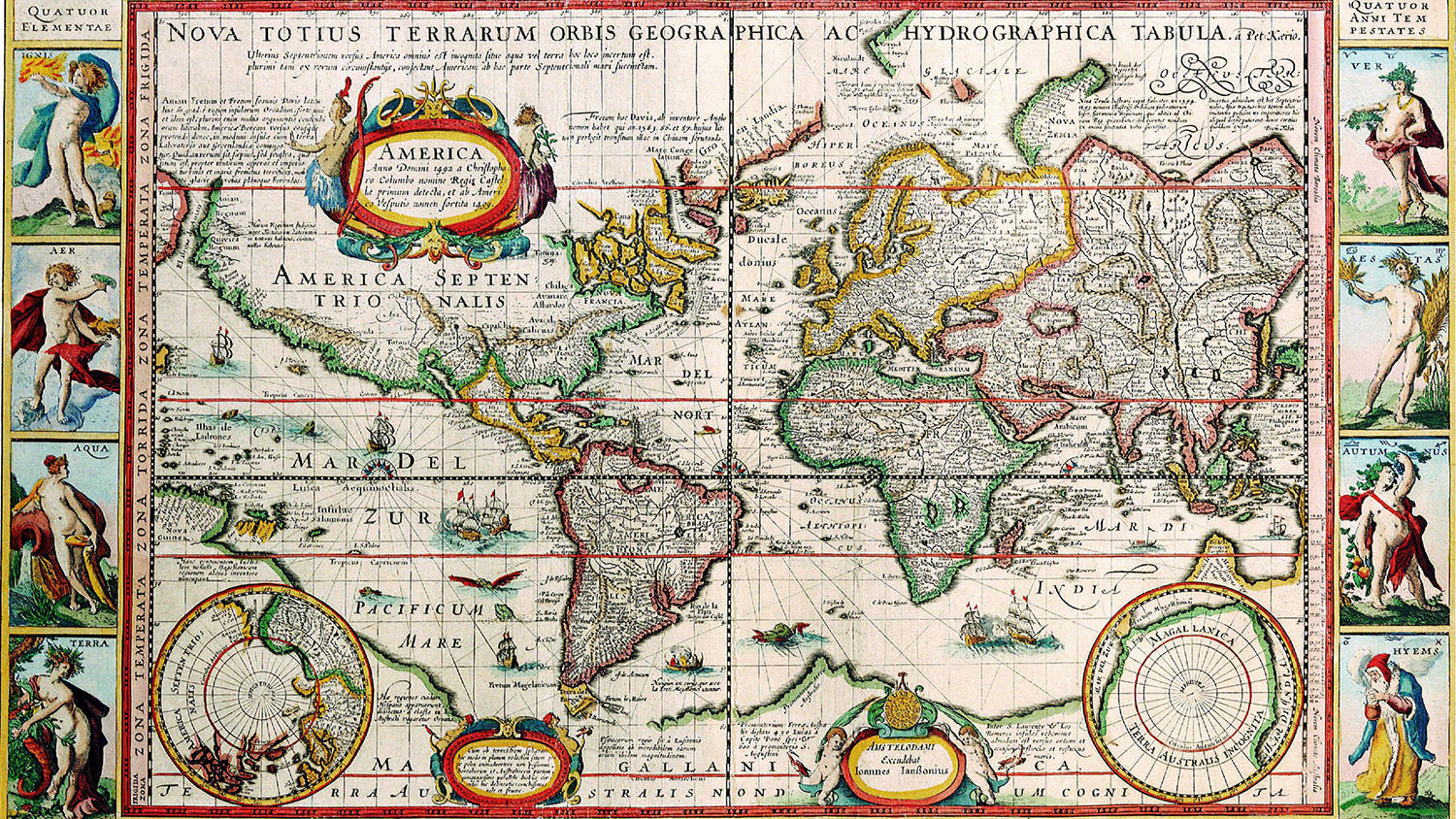On the Value of Poetry

Editor’s Note: This is a guest post by Jon Thompson, a poet and professor of English at NC State. We are sharing Thompson’s essay here to help us celebrate poetry on World Poetry Day. Thompson’s fourth collection of poems, Notebook of Last Things, will be published in April by Shearsman Books. You can find two other posts related to NC State and World Poetry Day here.
In his poem “In Memory of W.B. Yeats,” W.H. Auden famously declares, “For poetry makes nothing happen.” The poem goes on to imagine poetry as a sort of autonomous territory, separate from the world of commerce and action: “it survives/In the valley of its making where executives/Would never want to tamper, flows on south/From ranches of isolation and the busy griefs,/Raw towns that we believe and die in; it survives,/A way of happening, a mouth.”
I would like to take a moment to reflect on these claims as a way of considering the value of poetry. Auden’s account imagines poetry as an ahistorical realm, cut off from the flow of change and transformation, where “executives” do not go because, well, they are very much part of the world of enterprise and big-time transformation. They are the ones who “make things happen,” sometimes dramatically. Paradoxically, one of the finest poets in the U.S. in the 20th century was an executive, Wallace Stevens, who during business hours was an executive for the Hartford Insurance Company and, in his free time, composed magisterial poems on the American landscape and on the imagination itself.
In a paradox worthy of Wallace Stevens, who himself reflected on the different meanings of “nothing” in his poem “The Snow Man,” Auden’s claim about the value of poetry turns on what we interpret “nothing” to mean when his speaker says “For poetry makes nothing happen.” The context suggests that Auden’s speaker does not see poetry as the instigator of action or change, but it exists in an airless realm unto itself, or in Auden’s metaphor, “In the valley of its making.”
Auden’s poem seems to be suggesting “we have the workaday world of events and change and we have the world of poetry – and they are different worlds.” As I turn Auden’s claim over in my mind, challenges to his viewpoint arise. Is it really true that poetry does not instigate action or events?
One can think of examples where poetry has been part of revolutionary action. Yeats, for example, famously wonders in “Easter 1916” if poetry wasn’t partly responsible for the deaths of some of the most famous instigators of the Irish rebellion who became martyrs for the cause and thus helped to bring about the new independent Irish state. For Yeats, the problem is that poetry seems to inspire too much radical action. The Soviet Revolution was celebrated – and evaluated – by many different poets: Boris Pasternak, Anna Akhmatova, Osip Mandelstam, among others. Who can say what action their poetry brought about? Similarly, Latin American revolution has been inspired in different countries by activist poets.
In our own history, it would be hard to deny poetry and song a place for inspiring and strengthening activists for trials in the Civil Rights movement. Similarly, it is hard to imagine the advances of feminism in the world of industry and work without the voices of poets like Adrienne Rich or Denise Levertov.
Yet it would be a mistake to regard the value of poetry as arising only when it is translated into social action. That would be a very narrow criteria for evaluating poetry, and one that would exclude continents of poetic expression. But to assert that poetry makes nothing happen is to pose the question of what it does do if it does things other than instigate social action. What is its value, then, if we do not accept the terms of Auden’s formulation?
The obvious answer, I think, is that like all powerful art – painting, film, music – poetry possesses the power to re-envision the world; to see the world anew, outside of more conventional frameworks. To see the world in radically new or distinctive ways as, say, Emily Dickinson does, is a radical act in itself: her poetry testifies to the arbitrariness of existing norms and structures, and its imaginative force challenges them. Her poetry, that is, re-envisions the world and challenges us to remake it in ways that measure up to her sense of possibility.
This analytical way of understanding the power of poetry is important to understanding its allure, not least among critics. But poetry does more than offer new intellectual paradigms. Poetry is thought-as-feeling and feeling-as-thought. The emotional dimension of poetry is less studied and less well understood than its analytical dimension, but it is no less important, and poetry owes as much of its durability and longevity in culture to its expressive, emotional powers as to its ability to reframe experience for us. Poetry’s intellectual and emotional witness, in its most powerful, expressive forms, frames experience in ways that compel allegiance.
But this explanation of the value of poetry is still incomplete. Partly what makes poetry satisfying is that it offers pleasure – not just intellectual pleasure but a deeply-satisfying physical and aesthetic pleasure achieved through a highly-disciplined use of language: if poetry is to be something other than chopped-up prose, it must have a movement and a music of its own, to say nothing of form. This pleasure is a good in its own right, but it also, as Theodor Adorno observed, exists in poetry with such fullness and freedom and purity of commitment that just by being itself poetry indicts a world in which cruelty and unfreedom and pain are commonplace.
There’s a reason why even in a society such as ours, which truthfully cares very little for poetry, that people still turn to it in times of intense social pain, times of crisis (think 9/11), or alternately, in times of difficult-to-express joy (think of weddings). Poetry has the power to offer vision, truth-telling and pleasure in a unified moment of experience.
Auden ends his estimate of poetry by saying that it “survives/A way of happening, a mouth.” I agree with this, but Auden really understates the matter. Yes, poetry is “a way of happening, a mouth” but it is more than that. What Auden leaves unsaid is that poetry is a communal act: it is one human being addressing other human beings in a full expression of shared experience, in an expression of “shared humanity,” if that fraught cliché retains any meaning any more. Rather than subscribing to W.H Auden’s formulation, I think the better starting point is John Berger’s declaration in “The Hour of Poetry” that “Poetry can repair no loss but it defies the space that separates. And it does this by its continual labor of reassembling what has been scattered.”
- Categories:


